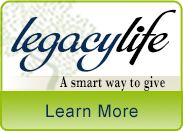Giving Options
First, here is how to make a simple “revocable” gift:
- Include a bequest in your will or living trust stating that a certain dollar amount, a specific percentage, or the residue of your estate will go to FSA at your death. This can be accomplished in the writing of your initial will, the updating of a will already in effect, or by adding a “codicil” or amendment to your existing will. Recommended language can be found at this link to Bequest Language.
- Designate FSA as a beneficiary of your IRA, retirement pension or annuity. All of these assets are considered “tax heavy”, in that they will be subject to significant taxation (both income and estate taxes) if you leave them to your heirs. In contrast, the full value of the asset can be transferred tax-free to a qualifying charity like FSA. It is easy to name FSA as a full or partial beneficiary on the beneficiary forms provided to you by the custodian of your assets.
- Name FSA as the beneficiary of an existing insurance policy you no longer need or buy a new policy that names FSA as beneficiary. To learn more about how to leverage a smaller annual gift for premiums into a very significant legacy gift, please read about Legacy Life Insurance.
Benefits of revocable legacy gifts are: 1) no money out of pocket, 2) changes can be made at any time by the donor, and 3) recognition now as a member of the Neighborhood House Society.
In contrast, Irrevocable gifts like Charitable Gift Annuities and Charitable Remainder Trusts require that your gift of cash, stock or real property be made now in exchange for life-time income for you and your spouse. Other benefits, in addition to a life-time income stream, may include:
- Current income tax deduction
- Avoidance of long-term capital gains tax on appreciated stock or real property
- Increase in your income and effective rate of return from rental property
- Reduction in estate taxes by removing assets from your estate
- Recognition in the Neighborhood House Society
- Ability to leave a significant charitable legacy to your community
Gifts of Real Estate. Outright gifts of real estate can be made to Family Service Agency, avoiding capital gains tax on the sale of appreciated property. There is also a gift called a Life Estate (or Retained Life Estate) that enables the donor to gift title in their home to a charity like FSA while continuing to live in the house, with an agreement to continue to pay all of the taxes and maintenance costs during your lifetime. This affords a charitable income tax deduction that can be taken at the time title is transferred to charity. And recognition is accorded now for a gift in an amount equal to the appraised value of your home. Contact us for more information, or talk to your own legal and financial advisors.
Legacy Life Giving: With Legacy Life Giving, the donor purchases a life insurance policy and their favorite charity is named as the owner and beneficiary of the policy. Using the Legacy Life program, you can multiply the ultimate size of your donation by two, three, four, five times—or even more. Learn More >
Legacy gifts like those mentioned above are often called “planned giving,” because they require careful financial planning for yourself and your family. Be sure to consult with your attorney, tax accountant or financial advisor before deciding on the best gift strategy for your individual and family circumstances. Or we can put you in touch with an appropriate professional advisor serving on our FSA Planned Giving Advisory Council.


